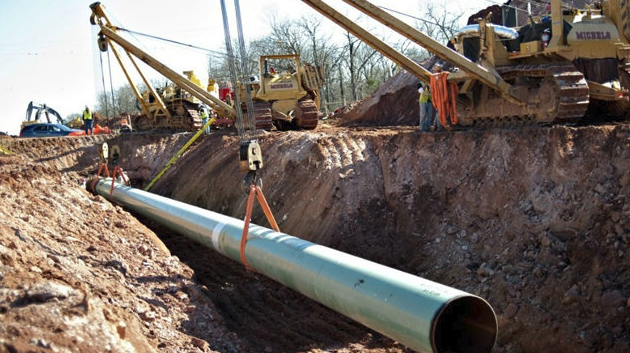TORONTO — A Superior Court judge has dismissed a bid by two northwestern Ontario First Nations for a declaration that any new activity on older pipelines that causes "physical impacts" requires that they be consulted and accommodated.
Justice Wendy Matheson, in a decision released on July 30, ruled that the issue "cannot be fairly and justly decided using the partial summary judgment process."
Lawyers for Aroland and Ginoogaming had sought a summary judgment—a judgment without a full trial—on their claim that intrusive work on pipelines built years before court rulings in 2004-2005 recognized the constitutional duty to consult First Nations, should also trigger that duty.
Defendants in the matter were the federal government, TransCanada Pipelines and the National Energy Board.
The application involved several natural gas pipelines approved between 1956 and 1998 which run through northern Ontario and the traditional territories of the two First Nations.
Aroland Chief Dorothy Towedo, in a statement prior to the court hearing in June, said "work like 'integrity digs' where they dig up part of the pipeline to repair or replace it, should no longer happen without the Crown and the company first engaging with and protecting impacts against the First Nations who live and are from there."
Integrity digs are typically 8 to 18 metres long, take an average of 23 days to complete, and require the excavation of the pipeline using heavy equipment. There have been 247 such digs within the First Nations' traditional territory since the pipelines were built.
TransCanada had stated that maintenance is required so that it "can continue to safely transport natural gas to heat homes, schools, hospitals and businesses."
Justice Matheson noted that the procedures are "very invasive," and that the defendants downplayed this by emphasizing that they mainly occur on lands which were already disturbed during the initial construction.
She observed that "pipeline safety is the important concern that motivates" the maintenance work, however the First Nations are not advocating for an unsafe pipeline. Rather, the judge said, "They seek the recognition of a Crown duty to consult, providing the First Nations with meaningful input into the planned testing process."
However, Justice Matheson said she was "not persuaded" that the issue raised by the motion "can be fairly and justly decided" through a summary judgment.
"It is too thin a slice of the duty to consult analysis to do justice to the position of either side," she said.
There is no word as yet on what steps the two communities may take next in connection with the lawsuit they first filed in January 2017.
